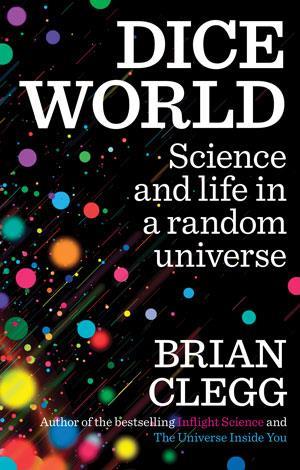Brian Clegg
Icon Books
2013 | 288pp | £12.99
ISBN 9781848315167

You may already be aware that there is just as much chance of throwing 20 heads in a row from a coin toss, as there is of throwing 10 heads and 10 tails (in a specific order). The opening chapters of Dice world cite this and many more examples of how we as humans instinctively base our predictions on patterns that do not always exist. How often do we place bets on outcomes with equal probabilities, just because they are ‘due’ (betting on red at roulette, after a streak of black)?
However, this story of how probability, chaos and randomness affect our lives unfolds at such a pace that after these familiar examples, I was soon questioning many of my own pre-conceived ideas of what can and can’t be predicted. Brian Clegg discusses all aspects of the notion of ‘chance’: from everyday uses of statistics, such as weather forecasting and stock markets, to a final philosophical note on pre-determination and God. (Hats off to Clegg for not shying away from such contentious topics.)
The significance of chaos and probability for explaining theories from quantum mechanics to the big bang is a pertinent reminder of how this maths underpins much of the evolution of physics research. All the usual suspects (Isaac Newton, Albert Einstein, Maxwell’s demon and Schrödinger’s cat) are there, and although these are common characters in popular science books, the perspective is still engaging, and you are left feeling enlightened about even the easily recognisable topics.
Clegg’s writing style is highly readable, and the contemporary cultural references impressed upon me how recently this book was published, and how accessible it is. Dice World is recommended for anyone looking for a refresher course in familiar theories such as Heisenberg’s uncertainty principle, or who would like to improve their knowledge of probability and statistics.
Purchase Dice World from Amazon.co.uk












No comments yet